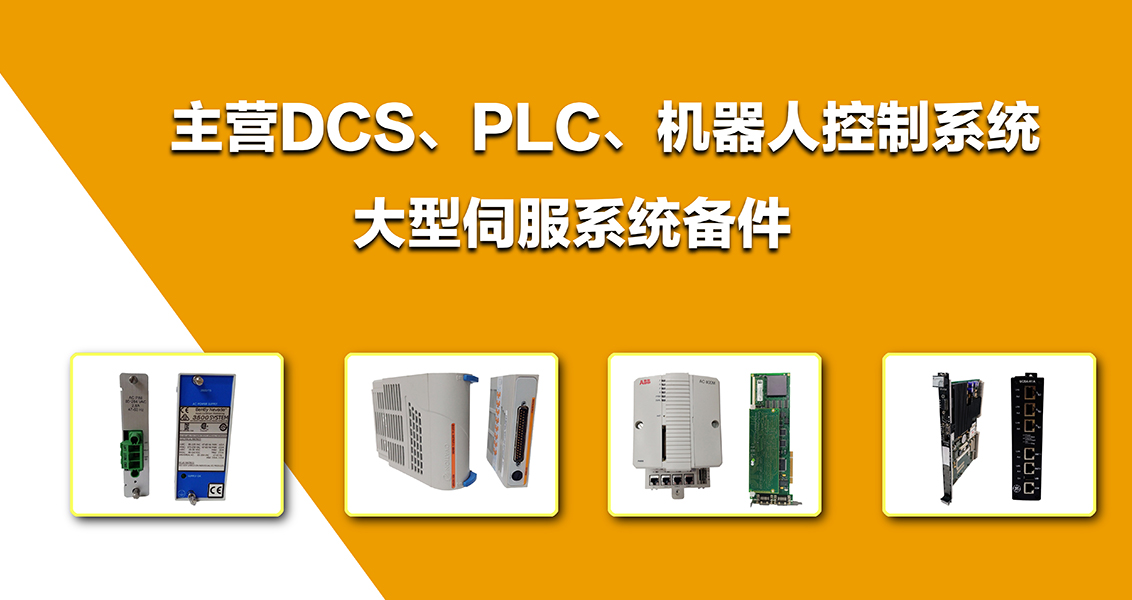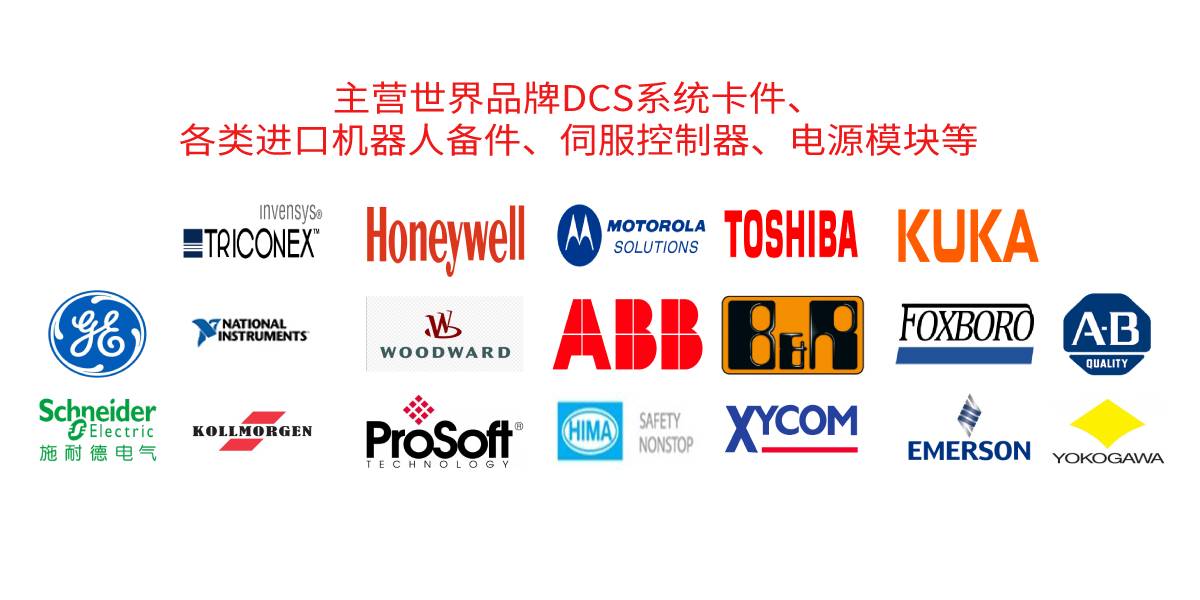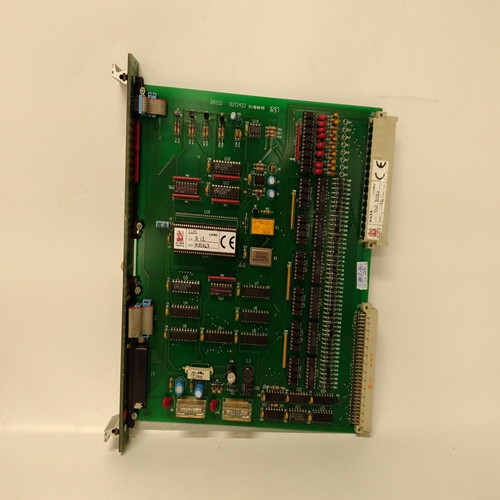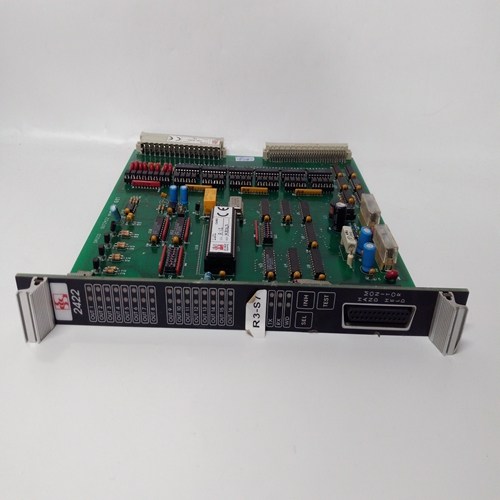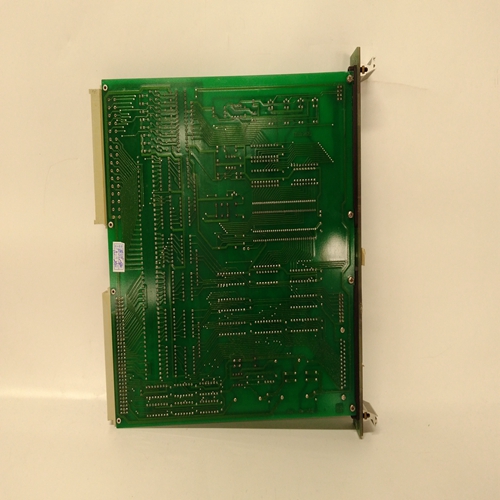SES 2422 OUT2422工業模塊
增加增益電位計的設置可提供更快的瞬態響應(降低突然變化引起的速度變化幅度負載中)。為了獲得最佳響應,緩慢增加增益(轉動電位計,順時針),直到電壓表上的電壓略微變為不穩定,然后根據需要緩慢逆時針旋轉增益,以穩定儀表讀數。步進加載發電機,或撞擊致動器終端軸,以確保原動機返回到正確的速度速度設置的過沖或過沖很少。為了減少過沖,增加復位(順時針轉動電位計)。
當復位電位計處于其調整的下部時(0至3開電位計刻度),順時針增加復位可能需要降低增益(逆時針轉動增益電位計)至保持穩定運行。
如果原動機返回正確速度較慢,則減小復位逆時針轉動電位計圖3-1說明了原動機完全通過斜坡時間電位計啟動逆時針方向(無斜坡,注意不要過度扭轉罐),步驟四種不同復位電位計設置下的負載,以及穩定、穩態運行條件。這些是自然曲線上的典型性能曲線吸氣式(非渦輪增壓)柴油發動機。
增益不一定能獲得最佳性能電位計處于最大穩定順時針位置
在某些情況下在這種情況下,增益必須略微降低,以確保以下條件下的穩定性廣泛變化的條件。執行器補償調整如果按照初始預啟動中的說明設置了致動器補償設置,通常不需要進一步調整。如果是緩慢的周期性不穩定性保持,稍微增加執行器補償(轉動電位計順時針),并重復增益和復位調整。繼續增加執行器補償并重新調整增益并復位直到達到穩定。如果明顯存在快速不穩定或極為活躍的執行器,則稍微降低執行器補償(逆時針轉動電位計)。如果必要時,執行器補償可完全逆時針設置(注意不要過度扭轉鍋)。這可能是發動機啟動時需要的扭轉會導致燃油連桿過度移動。低怠速調整1.原動機應大致處于額定速度,低怠速電位計設置為最大值(完全順時針方向,小心而不是過度扭轉鍋)。打開額定值的外部閉合聯系2.降低低怠速(逆時針轉動電位計)直到達到推薦的怠速。
Increasing the setting of the GAIN potentiometer provides faster transient
response (decreases the magnitude of the speed change from a sudden change
in load). To achieve optimum response, slowly increase the GAIN (turn the
potentiometer clockwise) until the voltage on the voltmeter becomes slightly
unstable, then slowly turn the GAIN back counterclockwise as necessary to
stabilize the meter reading. Step load the generator, or bump the actuator
terminal shaft, to make sure that the prime mover returns to the proper speed
with little overshoot or undershoot of the speed setting. To reduce overshoot,
increase the RESET (turn the potentiometer clockwise).
When the RESET potentiometer is in the lower part of its adjustment (0 to 3 on
the potentiometer scale), increasing the RESET clockwise may require
decreasing the GAIN (turning the GAIN potentiometer counterclockwise) to
maintain stable operation.
If the prime mover is slow in returning to the proper speed, decrease the RESET
by turning the potentiometer counterclockwise
Figure 3-1 illustrates prime mover starts with the RAMP TIME potentiometer fully
counterclockwise (no ramp—be careful not to overtorque the pot), step
loadings at four different RESET potentiometer settings, and stable, steady-state
running conditions. These are typical performance curves on a naturally
aspirated (non-turbocharged) diesel engine.
Optimum performance is not necessarily obtained with the GAIN
potentiometer at the maximum stable clockwise position. In some
cases, the gain must be reduced slightly to ensure stability under
widely varying conditions.
Actuator Compensation Adjustment
If the ACTUATOR COMPENSATION is set as described under Initial Prestart
Settings, no further adjustment is normally required. If a slow periodic instability
remains, slightly increase the ACTUATOR COMPENSATION (turn the
potentiometer clockwise), and repeat the GAIN and RESET adjustments.
Continue to increase the ACTUATOR COMPENSATION and readjust the GAIN
and RESET until stability is achieved.
If a fast instability or extremely active actuator is evident, slightly decrease the
ACTUATOR COMPENSATION (turn the potentiometer counterclockwise). If
necessary, the ACTUATOR COMPENSATION may be set fully counterclockwise
(be careful not to overtorque the pot). This may be required when engine
torsionals cause excessive fuel-linkage movement.
Low Idle Speed Adjustment
1. The prime mover should be approximately at rated speed with the LOW
IDLE SPEED potentiometer set at maximum (fully clockwise—be careful
not to overtorque the pot). Open the external CLOSE FOR RATED
contact.
2. Decrease the LOW IDLE SPEED (turn the potentiometer counterclockwise)
until the recommended idle speed is reached.




